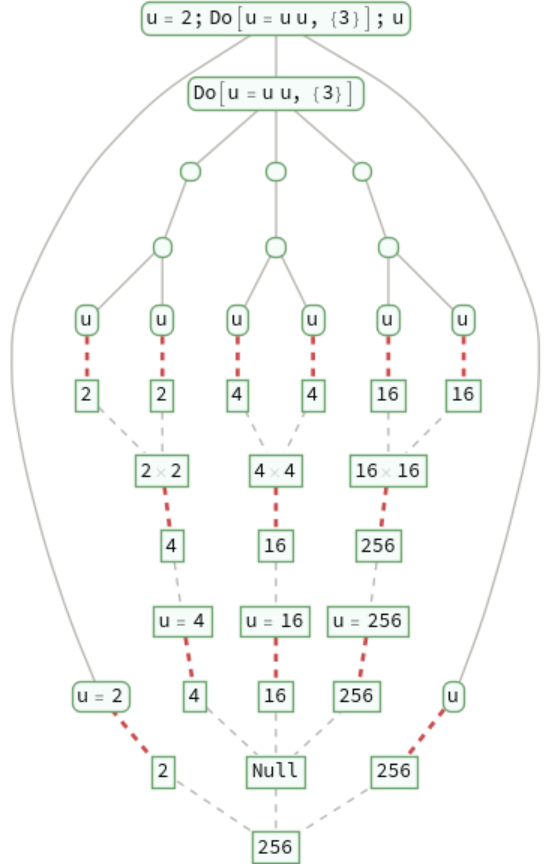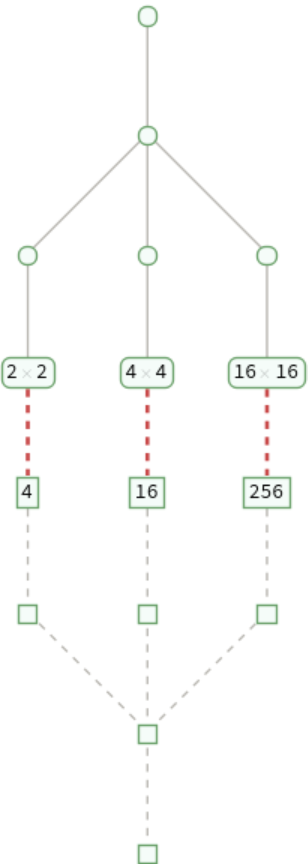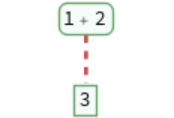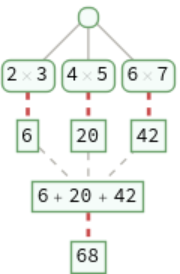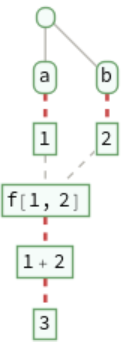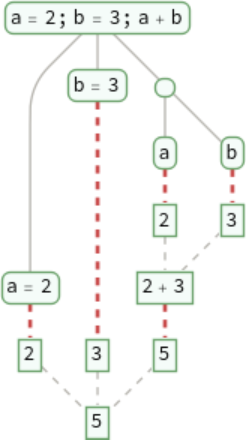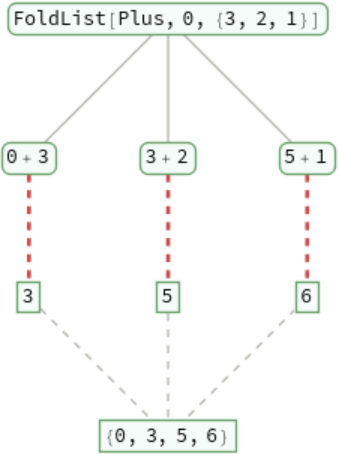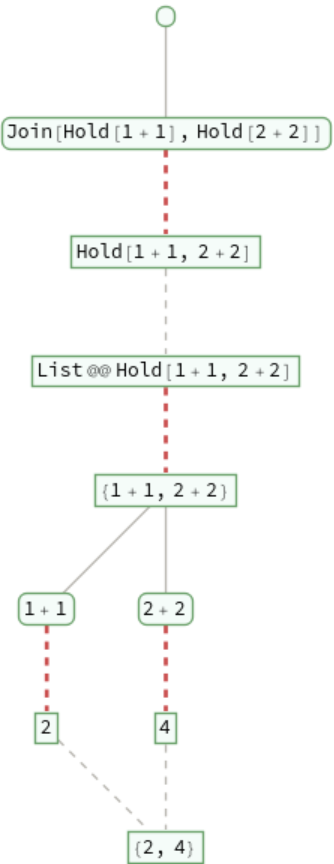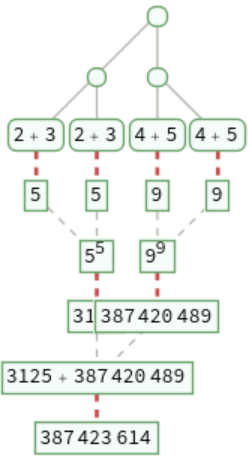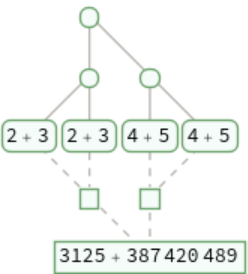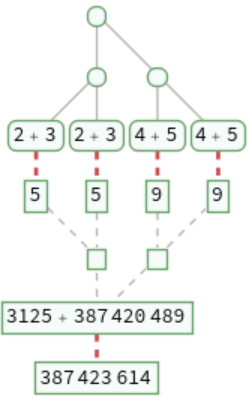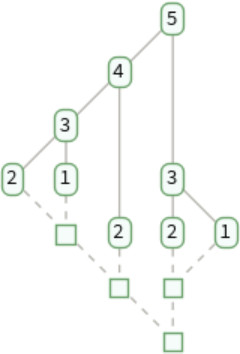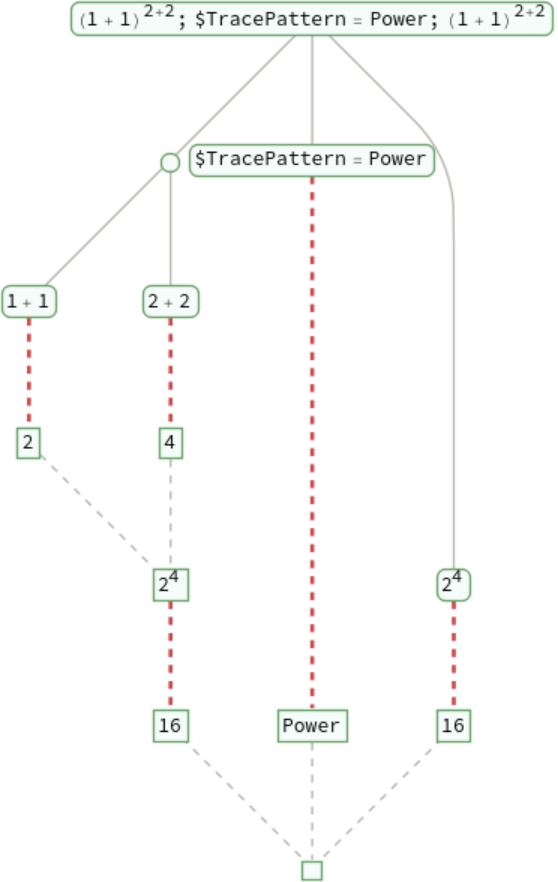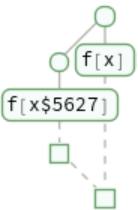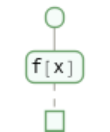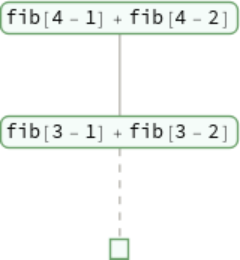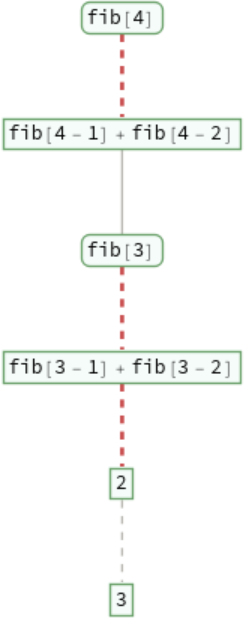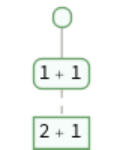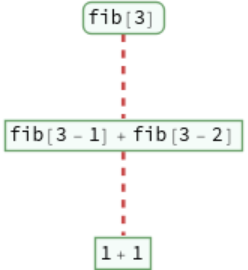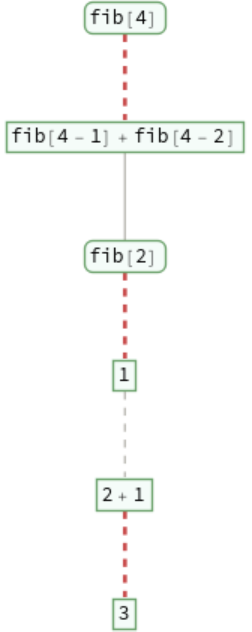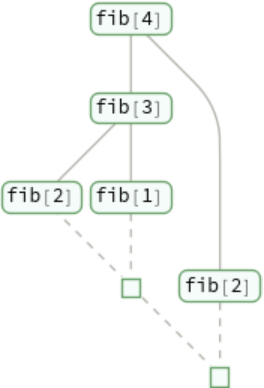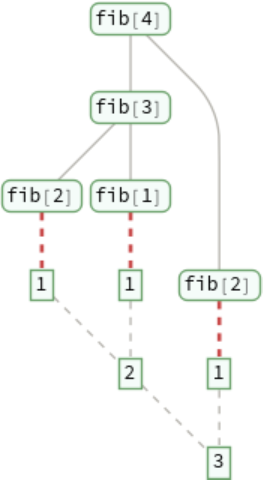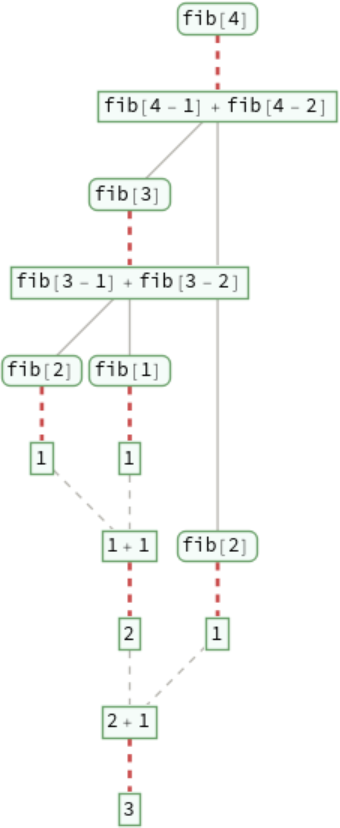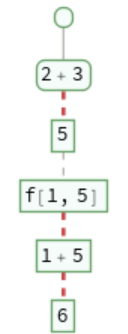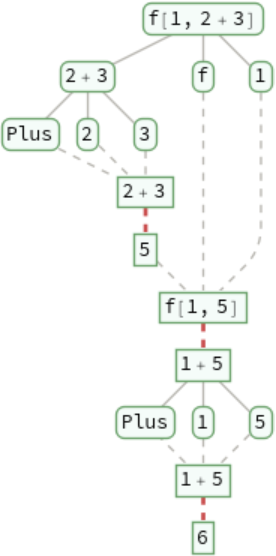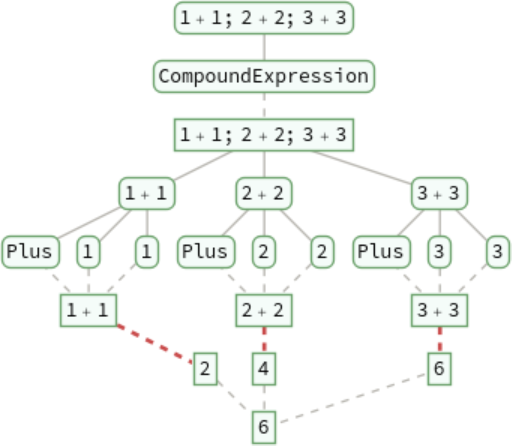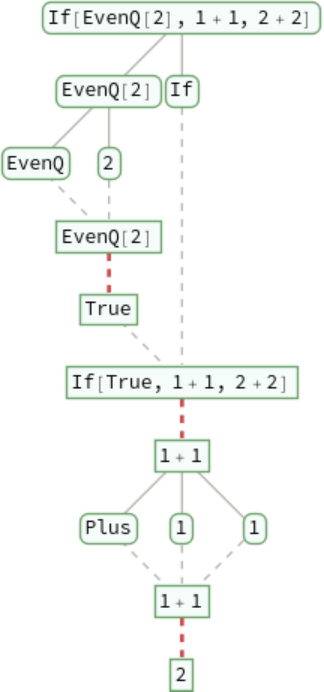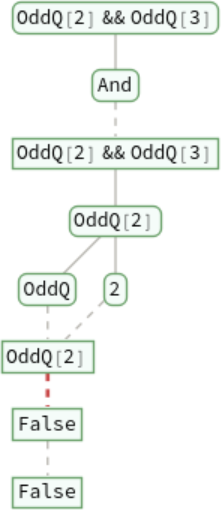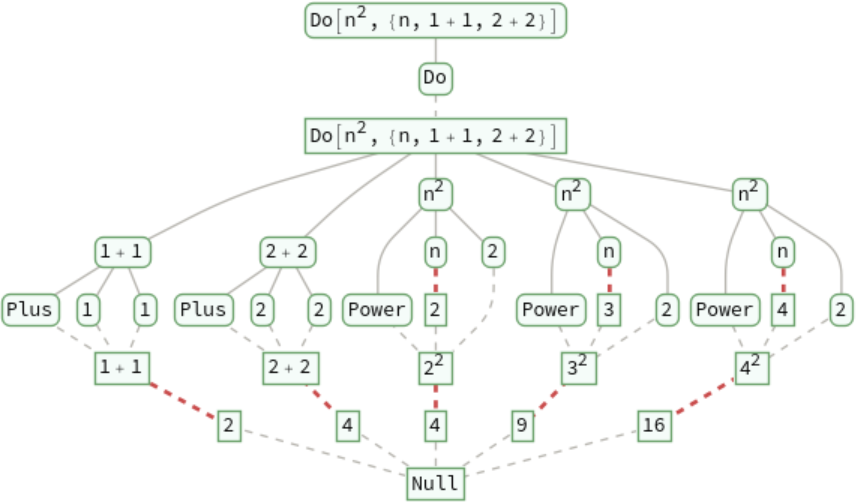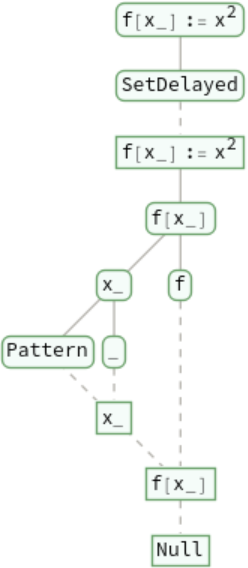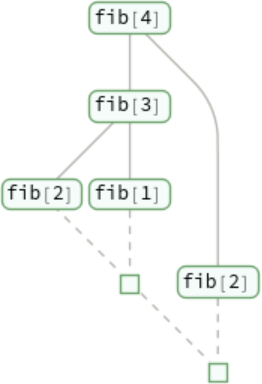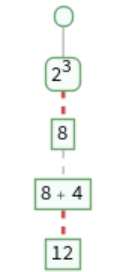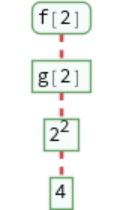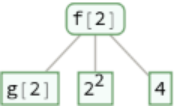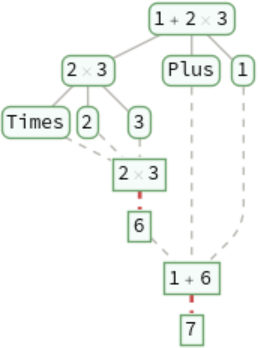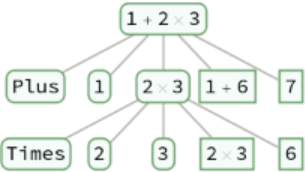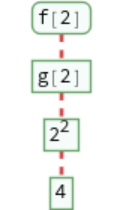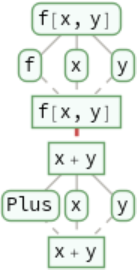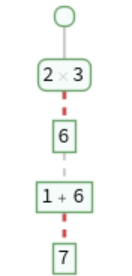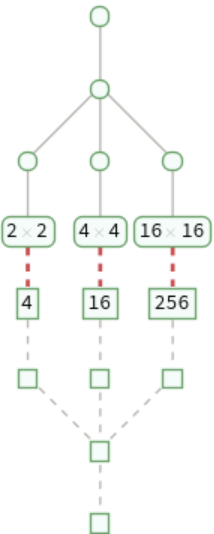Scope (10)
Trace an empty evaluation chain:
Trace a single step evaluation:
Trace each branch in an evaluation:
Trace evaluations given by definitions:
Trace each step in an evaluation:
Trace the operation of FoldList:
Trace the steps in a non-standard evaluation:
Trace each step in an evaluation:
Include only those expressions that match _Plus:
Trace the computations with head Plus:
Apply a transformation rule to expressions that match a pattern:
Modify the setting for the form argument during the execution of TraceGraph[expr,form] by resetting the value of the global variable $TracePattern:
Options (23)
MatchLocalNames (2)
By default, symbols such as x match symbols with local names of the form x$nnn:
With MatchLocalNames→False, only an explicit match of x will show up:
TraceAbove (4)
A recursive definition for finding Fibonacci numbers:
Show only what sums of fib are encountered:
Show the beginning of the evaluation chain that leads to each sum of fib:
Show the entire evaluation chain that leads to each sum of fib:
TraceBackward (4)
A recursive definition for finding Fibonacci numbers:
Show only what additions of positive integers are required:
Show the beginning of the evaluation chain that leads to each addition:
Show all intermediate evaluations that led to each addition:
TraceDepth (3)
A recursive definition for finding Fibonacci numbers:
Trace only evaluations through depth 3:
Trace all evaluations:
TraceForward (4)
A recursive definition for finding Fibonacci numbers:
Show only what evaluations of fib are encountered:
Show only the evaluations of fib and the results:
Show all intermediate evaluations between calls of fib and the result:
TraceOff (2)
Trace evaluation of an expression that evaluates a function g:
Omit evaluations required to get the values of g:
TraceOn (2)
Trace evaluation of an expression that evaluates a function g:
Trace only evaluation inside of g:
TraceOriginal (2)
Trace evaluation of an expression showing evaluation chains for expressions that change:
Show evaluation chains even for expressions that do not change:
Applications (5)
Trace the evaluation of control structures such as CompoundExpression:
Trace the evaluation of conditionals such as If:
Trace the evaluation of logical operations such as And:
Trace the evaluation of iteration functions such as Do:
Trace the evaluation of assignments such as SetDelayed:
Properties and Relations (8)
TraceGraph[expr] traces each step in the evaluation of expr:
TraceGraph[expr,form] includes only those expressions that match form:
This corresponds to deleting all expressions that do not match form, then deleting empty evaluation chains:
TraceGraph gives a graph with vertices of the form Trees`TraceNode[HoldForm[expr],pos]:
TraceGraph uses highlighted dashed edges for iteration:
The children given by TraceTree correspond to subsequent iterations in the reevaluation of expressions:
TraceGraph uses solid and dashed edges for increasing and decreasing recursion levels, respectively:
The levels given by TraceTree correspond to the recursion levels of subsidiary evaluations:
Each iteration in the reevaluation of an expression at recursion level n is represented as Trees`TraceNode[expr,{i1,…,in}]:
The result of recursion at level n is represented as Trees`TraceNode[expr,{i1,…,in-1}]:
Trees`TraceNode[Null,{…,1}] represents the first node in an evaluation chain when the first expression is not included:
Trees`TraceNode[Null,{…,-1}] represents the last node in evaluation chain when the last expression is not included:
